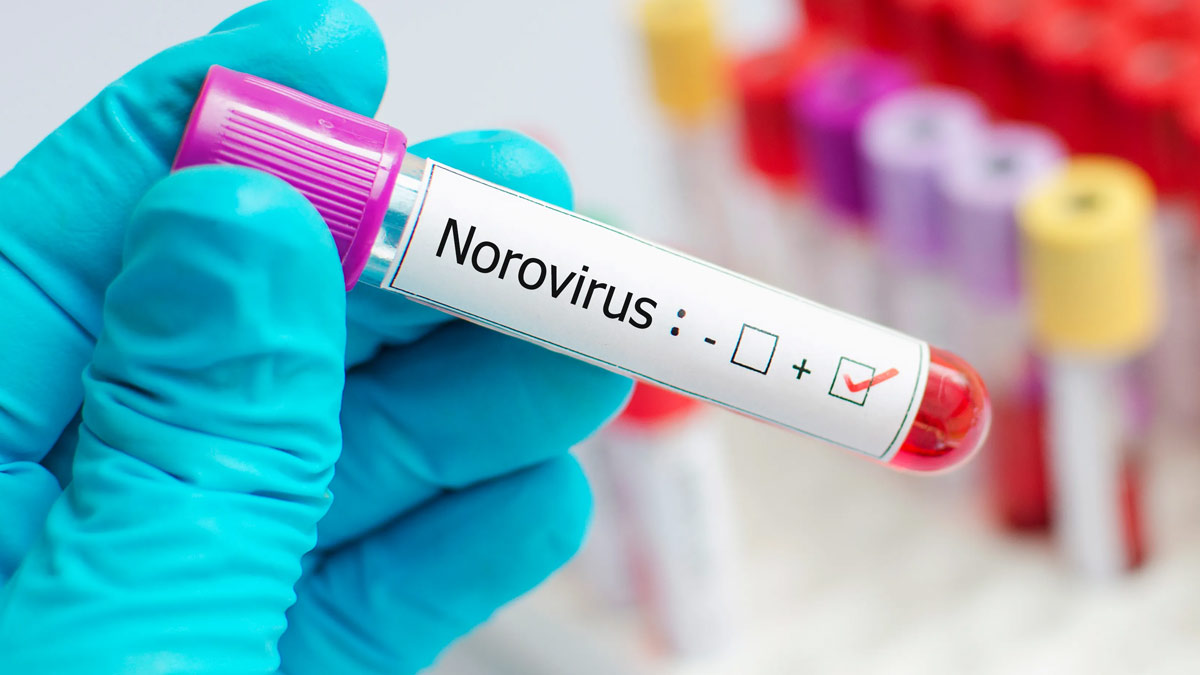Norovirus, the leading cause of foodborne illness in the United States, is currently on the rise, with medical experts urging caution as outbreaks increase. Known for causing stomach issues like diarrhea, vomiting, and nausea, the highly contagious virus is spreading quickly, particularly in schools, daycares, jails, and even cruise ships.
According to the Centers for Disease Control and Prevention (CDC), there were 91 reported outbreaks of norovirus during the first week of December 2024, which is a significant increase from 69 outbreaks the previous week. Typically, the U.S. sees fewer than 65 outbreaks per week, making this surge a concerning trend. The CDC has also pointed out that the number of reported outbreaks this year has surpassed those seen in the years before the COVID-19 pandemic.
What Is Norovirus and How Does It Spread?
Norovirus is a viral infection that spreads easily through contaminated food, drinks, or surfaces. It can also spread through direct contact with infected people or by touching items like utensils that have been contaminated. Dr. Leana Wen, an emergency physician and clinical associate professor at George Washington University, explained to CNN that norovirus can also be transmitted through tiny droplets of vomit or fecal material that splatter onto surfaces, increasing the likelihood of contamination.
The virus is particularly dangerous in settings where people are in close quarters with one another. That’s why schools, daycares, jails, and even cruise ships are often hotspots for outbreaks. The CDC estimates that norovirus causes between 19 million to 21 million illnesses each year, leading to more than 400,000 emergency hospital visits and over 100,000 hospitalizations annually.
Recognizing the Symptoms of Norovirus
If you or someone you know is experiencing symptoms of norovirus, it’s important to act quickly. Common signs include diarrhea, vomiting, nausea, and stomach cramps. Some people also experience fatigue, headaches, a mild fever, chills, and muscle aches. While most people recover within one or two days without long-term effects, some can become severely ill.
If you notice more serious symptoms, such as a high fever, blood in your stool, or difficulty breathing, it is crucial to consult a medical professional right away. These can be signs of a more serious condition and require immediate attention.
Simple Steps to Stay Safe from Norovirus
Although there is no specific treatment for norovirus, you can take several steps to prevent infection and protect your health during this outbreak.
1. Practice Good Hand Hygiene: One of the most effective ways to prevent the spread of norovirus is through frequent handwashing. Dr. Wen advises washing your hands before eating and after using the bathroom. If running water isn’t available, use hand sanitizer to help kill any potential germs.
2. Avoid Food Preparation: If you are showing symptoms of norovirus, it is essential not to prepare food for others. The virus can be easily passed through food, so it is safer to avoid handling any food, plates, or utensils until you fully recover.
3. Clean Surfaces Regularly: The virus can live on surfaces for several hours, so it’s important to disinfect frequently touched areas like countertops, doorknobs, and bathroom fixtures. Regular cleaning with a disinfectant can help reduce the risk of spreading norovirus.
4. Stay Home When Sick: If you are experiencing symptoms of norovirus, the best thing to do is stay home to avoid spreading the illness to others. Rest, hydrate, and allow your body time to recover.
What to Do if You Suspect You Have Norovirus
If you or a loved one shows signs of norovirus, it’s important to stay hydrated, especially if vomiting or diarrhea is present. Drink plenty of fluids like water or oral rehydration solutions to help replace lost fluids and electrolytes.
Most cases of norovirus resolve on their own within a couple of days, but if symptoms worsen or you have concerns, reach out to a healthcare provider. For children, the elderly, and people with weakened immune systems, norovirus can lead to dehydration and other serious health complications, so it’s important to monitor their condition closely.
Final Thoughts
While the current surge in norovirus cases is concerning, following basic hygiene practices and taking steps to limit the spread of the virus can significantly reduce your risk of infection. The CDC and medical experts like Dr. Wen emphasize the importance of handwashing, staying home when sick, and keeping common surfaces clean to prevent outbreaks.
By staying vigilant and following these guidelines, you can help protect yourself and your loved ones from norovirus during this peak season.
(Source: newsbreak.com)







